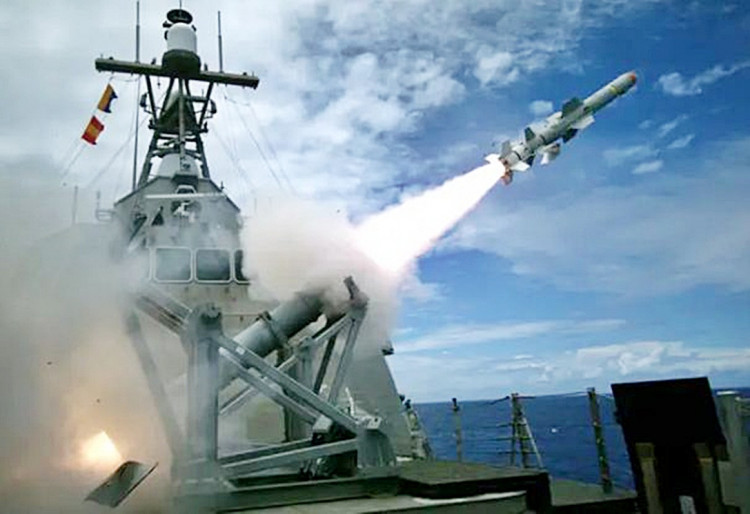In a significant escalation of tensions in the Red Sea, a U.S.-owned container ship, the M/V Gibraltar Eagle, was struck by an anti-ship ballistic missile fired from Houthi-controlled areas of Yemen, the U.S. Central Command confirmed. This attack, occurring southeast of Aden in Yemen, marks a worrying increase in hostilities impacting international shipping lanes, drawing international scrutiny and concern.
Owned by Eagle Bulk, a Stamford, Connecticut-based shipping firm, and operating under the Marshall Islands flag, the Gibraltar Eagle reported no injuries or significant damage and continued its journey despite the attack. However, the incident, which unfolded around 4 p.m. local time, underscores the volatile situation in the region.
According to reports from the United Kingdom Maritime Trade Operations (UKMTO), the attack took place approximately 110 miles southeast of Aden. This incident follows a series of recent military actions, including joint strikes by the U.S. and U.K. against Houthi targets in Yemen, in response to the group's increased aggression in the Red Sea.
The Iran-backed Houthi militants, who control large parts of Yemen including crucial maritime chokepoints, have launched over 30 attacks on commercial vessels since November 19th. Their actions have been linked to the ongoing war in the Gaza Strip and are seen as retaliatory measures against U.S. and Israeli influence in the Middle East.
British maritime security firm Ambrey reported that three missiles were launched by the Houthis, with one causing a fire on the Gibraltar Eagle. The vessel was transiting through the International Recommended Transit Corridor in the Gulf of Aden when struck. Ambrey assessed the attack as targeting U.S. interests, a response to the recent military strikes on Houthi military targets in Yemen.
The U.S. and U.K. forces carried out airstrikes on over 60 targets at 16 Houthi militant locations last week, targeting missile launch sites, production facilities, and radar systems. These strikes were a direct response to the Houthis' defiance of warnings to cease targeting maritime vessels in the Red Sea.
In addition to the attack on the Gibraltar Eagle, U.S. Central Command reported a second missile fired from Yemen earlier in the day, which failed in flight and impacted land in Yemen. Moreover, U.S. forces intercepted a cruise missile aimed at the USS Laboon in the southern Red Sea, highlighting the increased risk to naval and commercial shipping in the region.
The Houthis, not internationally recognized as the government of Yemen, have been in conflict with a Saudi-led coalition backed by the U.S. and the U.K. since 2015. Their control of strategic areas, such as the Bab el-Mandeb Strait, has significant implications for global trade, given its status as a crucial maritime passage connecting the Red Sea with the Gulf of Aden.
These recent developments indicate a troubling trend of maritime insecurity in one of the world's busiest shipping lanes. The attacks not only threaten the safety of vessels but also pose a risk to the global supply chain, which is still recovering from the disruptions caused by the COVID-19 pandemic.
International response to the incident has been swift, with authorities investigating the attack and issuing advisories for ships to transit with caution in the region. The situation remains fluid, with the potential for further escalation as the conflict in Yemen continues to affect broader regional dynamics.
This incident underscores the complex interplay of regional conflicts, international trade, and global security, and highlights the need for a coordinated international response to ensure the safety of maritime navigation in conflict-prone areas.




